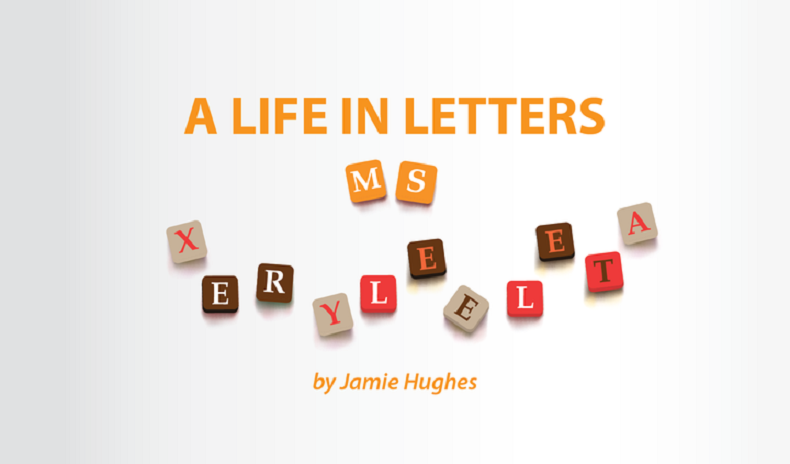Life is a Symphony of Challenges – Play On!
Written by |


In Cold Sassy Tree, the classic novel by Olive Ann Burns, Grandpa Blakeslee tells his grandson Will Tweedy that, “Livin’ is like pourin’ water out of a tumbler into a dang Coca-Cola bottle. If’n you skeered you cain’t do it.” If you don’t speak fluent hick, as I do, I’ll break it down for you: He’s telling the young man that living is a challenge, but a person shouldn’t be afraid to face whatever comes.
I am a lifelong musician, specifically a French horn player, and that cruel and beautiful instrument taught me just how correct Grandpa Blakeslee was. As I’ve sought to master it, I’ve discovered that if you’re afraid, the horn somehow knows and won’t cooperate. You can never make what you play beautiful if there’s fear in your heart.
Nowhere did I learn this lesson more thoroughly than when I was given a challenge and was tasked with playing the first horn part of Aaron Copland’s Fanfare for the Common Man. (If you’d like to download the sheet music and score, you can do so by visiting this site. I’d also suggest you listen to it here before you continue reading.)
Mastering this short, yet demanding, piece helped me become not only a better musician, but also a person better suited to handle the challenges of living with MS. For example:
Details matter
If you’re not a musician, I’ll break it down for you. This piece isn’t technically difficult. There aren’t a lot of notes, and the tempo is slow. What you find in this piece are a ton of ties (symbols that link notes together), dynamics (symbols that tell you how loudly or softly to play), accent marks (symbols that tell you which notes to emphasize), and meter changes (moments in the piece when it shifts from three beats to four). You also have to think about phrasing (when to breathe) and staying in tune. And while you’re processing all this, you must never forget that what comes out of you should sound lovely, effortless and strong.
All those details matter. And the same is true for the challenge of living with multiple sclerosis. You have to stay on top of the latest treatments and medications, keep up with your injection schedule, take your vitamins, and take care of your body. However, you never can lose yourself in the details of survival. You still need to live a beautiful life, one that still has the potential to take your breath away. What else is all that minutiae for anyway?
Have a clear idea where you’re headed
The rhythms of Copland’s piece aren’t hard, but if you don’t hear each note in your head before you play it — trust me when I say this—you will miss. I did so countless times during rehearsals. And when there are fewer than 12 people playing, as there are in this piece, there’s nowhere to hide. Everyone notices when you mess up. However, if I thought about it and approached the note with determination, I found it more often than not.
That’s what being an MS patient requires — willpower and patient practice. The disease isn’t going anywhere, and there are times when you feel like it’s beating you up and taking your lunch money. But that doesn’t mean you have to let it steal your joy and dominate your thoughts. You choose the way you approach life. Figure out what you want to do with the days you’re given and get out there and do it.
No guts, no glory
The first time I played this piece, I couldn’t hit the B flat in measure 28. (The highest note in the first horn part.) But that was before I learned the secret to notes way up in that rarified air. I figured out I couldn’t sit there worrying about it. If you do, you’ll miss. Instead, you just go for it and trust your lip, the air in your lungs, and the note in your head. When I started doing that, the note practically played itself.
When it comes to things that seem out of your reach, you can’t approach them thinking you’ll fail. Think of them all as challenges. Try. You might just surprise yourself.
Perfection is impossible (but don’t stop trying)
Even professionals miss notes in this piece. Granted, it’s hard to hear them in the recording I linked to above, but I caught two slight bobbles. But they don’t mar the overall grace and power of the composition. Even with a few errors, the piece can still transport the listener to a place both grand and glorious.
You’re going to have some bad days when you have MS. I know I do. But I don’t let them drag me down. I just can’t. There are too many wonderful things to get out there and experience, too many moments I don’t want to miss. Because, while life is certainly more difficult when you have this condition of ours, that doesn’t mean we don’t play on.
Note: Multiple Sclerosis News Today is strictly a news and information website about the disease. It does not provide medical advice, diagnosis, or treatment. This content is not intended to be a substitute for professional medical advice, diagnosis, or treatment. Always seek the advice of your physician or other qualified health provider with any questions you may have regarding a medical condition. Never disregard professional medical advice or delay in seeking it because of something you have read on this website. The opinions expressed in this column are not those of Multiple Sclerosis News Today, or its parent company, Bionews Services, and are intended to spark discussion about issues pertaining to multiple sclerosis.



Cathy Chester
Beautiful and I love the comparison of living with MS to music. I have "Fanfare for the Common Man" on CD and downloaded on my iPod. It's a gorgeous, meaningful piece that seems so, well, American. You reminded me how much I miss playing my flute after so many years of lessons, marching band, orchestra and personal love. Thank you for such a beautiful article.
Yes, MS must be taken care of as much as playing the notes in our hearts just right.Perfectly.
Jamie Hughes
Good to know there's another musician out there. Thanks so much for reading and leaving such a kind comment, Cathy. It means a lot to me to know my words found a likeminded friend out there in the void. Play on, playa!